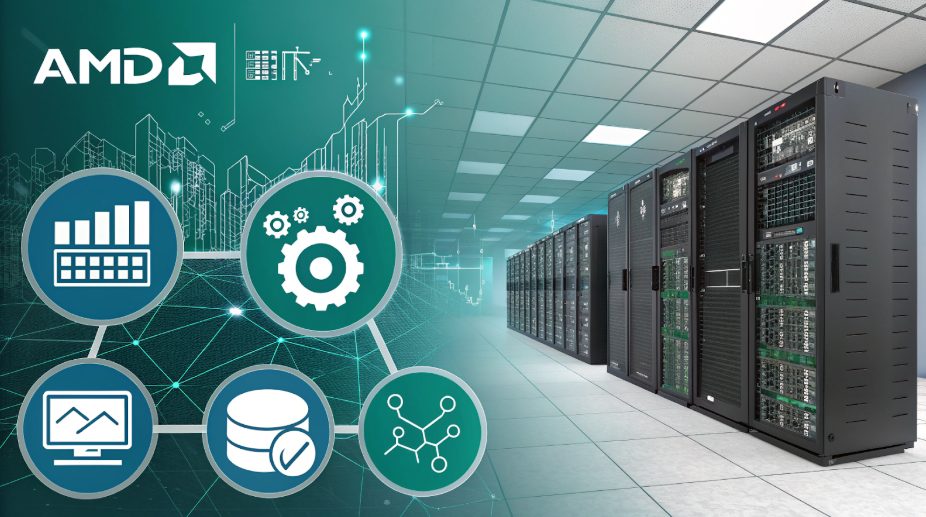Optimize Costs with AMD EPYC for Hong Kong Game Servers

Optimize Costs with AMD EPYC for Hong Kong Game Servers
For game developers and publishers expanding into global markets from Hong Kong, server infrastructure plays a pivotal role in ensuring low-latency gameplay and cost-effective operations. This article explores how AMD EPYC processors offer a strategic advantage in optimizing both performance and expenses for game servers in Hong Kong, a critical hub for Asian and international gaming audiences.
Hong Kong’s Role in Game Server Infrastructure
Hong Kong’s strategic location as a global connectivity hub makes it an ideal base for game servers targeting Asia-Pacific and worldwide markets. Its robust network infrastructure, including high-speed international bandwidth and proximity to major markets like China, Japan, and Southeast Asia, ensures minimal latency for players. However, balancing the high demand for performance with operational costs remains a challenge.
Challenges in Game Server Optimization
- High-performance requirements for multiplayer games
- Need for low latency in real-time interactions
- Cost constraints in server hosting and colocation
- Energy efficiency concerns in data centers
AMD EPYC Processors: A Paradigm Shift in Server Performance
AMD EPYC processors have redefined server performance with their high core counts, advanced architecture, and energy efficiency. These processors are engineered to handle the most demanding workloads, making them an excellent fit for game servers that require simultaneous processing of thousands of player interactions.
Key Advantages of AMD EPYC for Game Servers
- Unmatched Core Density
AMD EPYC processors offer up to 128 cores and 256 threads, enabling servers to handle massive concurrent player connections. This core density reduces the number of servers needed, lowering both hardware and operational costs. For example, a game server using AMD EPYC can support 3-4 times more players per rack compared to traditional solutions. - Enhanced Multithreading Performance
The multithreading capabilities ensure smooth execution of complex game logic, physics calculations, and network operations. This results in reduced lag and improved player experience, even during peak traffic periods. - Energy Efficiency
AMD EPYC processors are designed for optimal power efficiency, with TDP values as low as 70W for certain models. This translates to significant savings in electricity costs, particularly in Hong Kong where energy prices are high. For instance, a data center using the servers can reduce power consumption by up to 69% compared to older systems. - Cost-Effective Virtualization
Virtualization on AMD EPYC platforms allows game developers to consolidate multiple game instances on a single server, minimizing hardware investment. This approach also simplifies management and reduces licensing costs for virtualization software.
Cost Optimization Strategies with AMD EPYC
By leveraging AMD EPYC processors, game companies can achieve substantial cost savings across various aspects of server operations:
Reduced Hardware Costs
The high core density of AMD EPYC reduces the number of servers required. For example, replacing 100 traditional servers with 14 AMD EPYC-powered servers can cut hardware costs by up to 65% over three years. This reduction also leads to lower maintenance and cooling expenses.
Lower Energy Bills
With energy efficiency improvements, AMD EPYC servers can save thousands of dollars annually in electricity costs. For a typical Hong Kong data center, this could amount to savings of $10,000 or more per year per server rack.
Scalability Without Overprovisioning
AMD EPYC’s modular design allows for easy scaling as player bases grow. Game companies can add cores or threads incrementally without replacing entire server systems, avoiding overprovisioning and unnecessary expenses.
Real-World Applications in Hong Kong
Several Hong Kong-based game studios and hosting providers have already adopted AMD EPYC processors with remarkable results:
Case Study 1: MMORPG Server Consolidation
A local game developer migrated its MMORPG servers to AMD EPYC, reducing the number of physical servers by 60%. This consolidation lowered hardware costs by 40% and cut energy consumption by 50%, while maintaining seamless gameplay for over 10,000 concurrent players.
Case Study 2: Cloud Gaming Platform
A cloud gaming startup in Hong Kong used AMD EPYC-powered servers to deliver high-quality streaming to users across Asia. The processors’ multithreading capabilities allowed the platform to handle 20% more concurrent streams per server, improving scalability and reducing latency by 15%.
Choosing the Right AMD EPYC Processor for Your Needs
Selecting the appropriate model depends on your game’s specific requirements:
- High-Core Models (e.g., 128-core variants) are ideal for massively multiplayer online games (MMOs) and high-concurrency applications.
- Balanced-Core Models (e.g., 64-core variants) offer a mix of performance and efficiency for mid-sized games and hybrid workloads.
- Energy-Efficient Models (e.g., 70W TDP variants) are suitable for cost-sensitive projects or environments with strict power constraints.
Future-Proofing Your Game Server Infrastructure
As game development evolves, so do the demands on server infrastructure. AMD EPYC processors are designed to adapt to future trends, including:
- AI and Machine Learning Integration
AMD EPYC’s advanced architecture supports AI-driven features like player behavior analysis and anti-cheat systems, enhancing game security and personalization. - 5G and Edge Computing
The low-latency capabilities of AMD EPYC make it suitable for edge computing deployments, ensuring fast response times as 5G networks become more widespread. - Enhanced Security Features
Built-in security technologies like Secure Encrypted Virtualization (SEV) protect game data and user accounts from cyber threats, a critical aspect of modern gaming infrastructure.
Conclusion
For game companies operating in Hong Kong, AMD EPYC processors offer a compelling solution to the challenges of balancing performance and cost. By leveraging their high core density, energy efficiency, and scalability, game servers can deliver exceptional player experiences while minimizing operational expenses. Whether you’re running an MMO, a cloud gaming platform, or a mobile game, AMD EPYC is a strategic investment that future-proofs your infrastructure and drives competitive advantage in the global gaming market.

